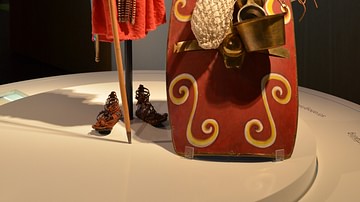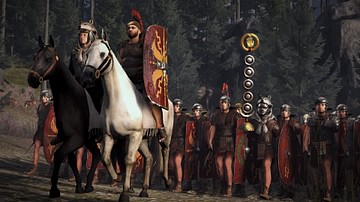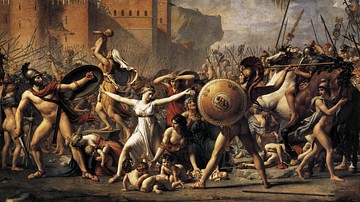Search
Search Results

Article
Roman Armor & Weapons
From the days of the hoplites through the creation of the legionary until the fall of the Roman Empire in the west, the Roman army remained a feared opponent, and the Roman legionary's weapons and armor, albeit with minor modifications, remained...

Definition
Childeric I
Childeric I (r. c. 458-481) was a late antiquity king of the Salian Franks during the period of the fall of the Western Roman Empire. Childeric's reign solidified the Salians as a dominant Frankish tribe and helped pave the way for the unification...

Article
Roman Walls
The many Roman walls still visible today throughout Europe and the Mediterranean, be they defensive walls such as the Servian Wall or house and monument walls, tell us a great deal about the evolution of Roman construction techniques. Roman...

Article
Officers of the Roman Army
With the appearance of the legionary, the Roman army was able to maintain a vast empire that totally embraced the Mediterranean Sea. Although the success of the army rested on the backs of the foot-soldiers and cavalry, there were others...

Definition
Roman Medicine
Roman medicine was greatly influenced by earlier Greek medicine and literature but would also make its own unique contribution to the history of medicine through the work of such famous experts as Galen and Celsus. Whilst there were professional...

Article
Caesarea Maritima's Role in the Roman Empire
Caesarea Maritima, the city Herod the Great (r. 37-4 BCE) built for Rome on the southeastern coast of the Mediterranean served as the Roman Empire's powerbase of operations both commercially and militarily. With Rome's ultimate goal of adding...

Definition
Roman Fort
The Roman army constructed both temporary and permanent forts and fortified military camps (castrum) across the frontiers of the empire's borders and within territories which required a permanent military presence to prevent indigenous uprisings...

Article
The Role of Women in the Roman World
The exact role and status of women in the Roman world, and indeed in most ancient societies, has often been obscured by the biases of both ancient male writers and 19-20th century CE male scholars, a situation only relatively recently redressed...

Definition
Roman Siege Warfare
In ancient warfare open battles were the preferred mode of meeting the enemy, but sometimes, when defenders took a stand within their well-fortified city or military camp, siege warfare became a necessity, despite its high expense in money...

Definition
The Goths
The Goths were a Germanic tribe who are frequently referenced for their part in the fall of the Roman Empire and their subsequent rise to power in the region of northern Europe, initially in Italy. Prior to their contact with Rome they must...